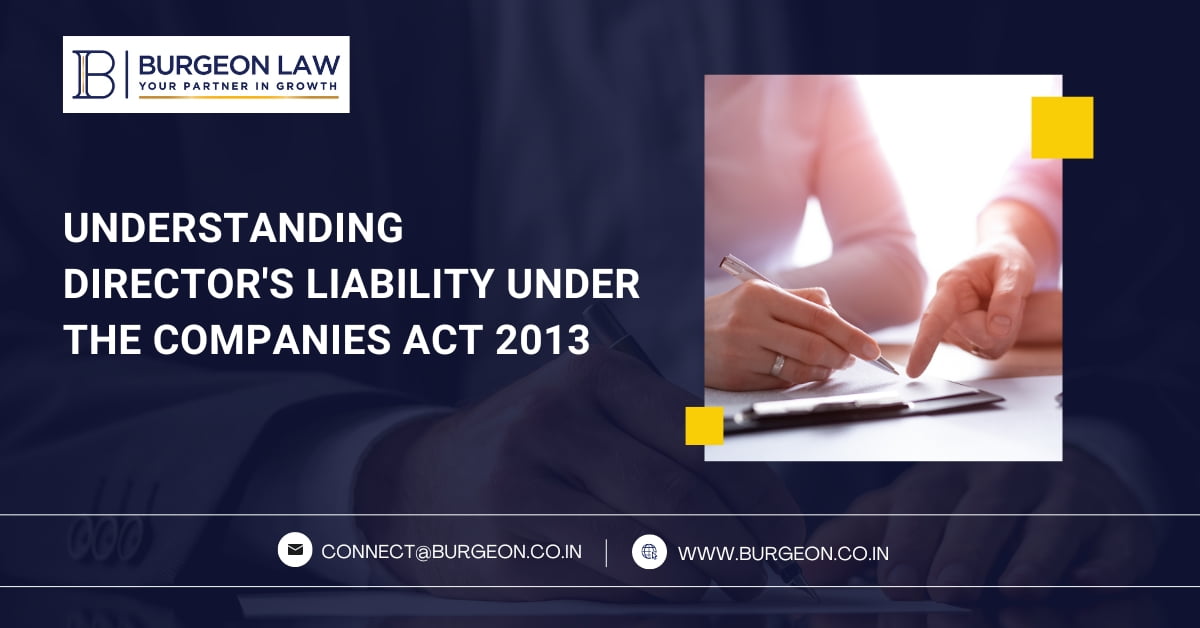Directors are the stewards of a company, entrusted with the responsibility of making critical decisions that impact its sustainability and success in achieving its goals and objectives. However, in light of the well-established legal principal of companies being separate legal entities, the question arises: “Would directors be accountable for any violations by the company, and are directors equally liable under the provisions of the Companies Act, 2013?”
Overview of Directors’ Duties and Liabilities
The Companies Act, 2013 (“Act”), imposes various duties on directors to ensure transparency, accountability, and fairness in corporate operations. These duties of the director as illustrated under Section 166 of the Act include:
- Duty of Care and Diligence: Directors are required to exercise reasonable care, skill, and diligence in the performance of their duties. This duty encompasses making informed decisions, conducting proper due diligence, and staying updated on the affairs of the company.
- Fiduciary Duty: Directors owe fiduciary duties to the company and its stakeholders, including shareholders and creditors. This duty requires directors to act in the best interests of the company, avoid conflicts of interest, and prioritize the company’s welfare over personal gain.
- Duty to Act in Good Faith: Directors must act honestly and in good faith in the best interests of the company. This duty prohibits directors from acting with malice, dishonesty, or improper motives.
- Duty to Prevent Mismanagement: Directors have a duty to prevent mismanagement and ensure compliance with statutory requirements, including maintaining proper accounting records, filing accurate financial statements, and adhering to corporate governance norms.
Types of Directors’ Liability
Directors’ liability under the Act can be categorized into two main types: civil liability and criminal liability.
Civil Liability
Civil liability arises from breaches of duty or negligence by directors, resulting in harm to the company or its stakeholders. Some common instances of civil liability include:
- Breach of Fiduciary Duty: Directors can be held liable for breach of fiduciary duty if they prioritize personal interests over the interests of the company, engage in self-dealing, or fail to disclose conflicts of interest.
- Negligence: Directors may be held liable for negligence if they fail to exercise reasonable care, skill, and diligence in the performance of the duties and compliances of the Company as required under the applicable law from time to time, causing losses, penalties and/or damages to be borne by the Company and its shareholders.
- Mismanagement: Directors can be held liable for mismanagement of company affairs, leading to financial losses or harm to stakeholders. This includes decisions that are reckless, imprudent, or made in bad faith.
Criminal Liability
Directors can also face criminal liability for certain offenses under the Act. These offenses typically involve fraud, non-compliance with statutory requirements, or other unlawful activities. Some examples of offenses that can attract criminal liability for directors include:
- Fraudulent Activities: Directors can be prosecuted for engaging in fraudulent activities such as misrepresentation of facts, falsification of accounts, or siphoning off funds.
- Insider Trading: Directors are prohibited from engaging in insider trading, i.e., trading in securities based on unpublished price-sensitive information. Violation of insider trading regulations can result in criminal prosecution.
Conclusion
Directors’ liability under the Companies Act, 2013, is a complex and multifaceted aspect of corporate governance. Directors have a duty to act in the best interests of the company and its stakeholders, and failure to fulfill these duties can result in civil and criminal liability. By understanding the legal framework governing directors’ liability and learning from prominent case laws, directors can effectively discharge their duties and contribute to the sustainable growth and success of the company.
Author – Abhishhek Singla (Partner)
Co- Author – Prajjwal Sharma

